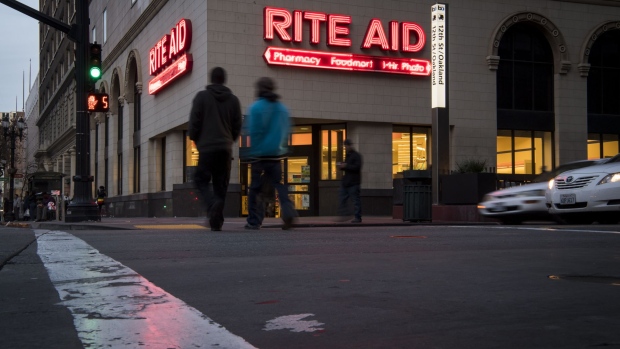Jan 10, 2022
Rite Aid’s Insurer Chubb Is Off the Hook for Opioid-Suit Cost, Court Says
, Bloomberg News

(Bloomberg) -- Rite Aid Corp.’s insurer, Chubb Ltd., won’t have to pay the cost of defending the pharmacy chain against lawsuits alleging it mishandled addictive opioid painkillers, an appeals court.
The Delaware Supreme Court on Monday, in a 4-1 ruling, overturned a lower court finding that the language of Rite Aid’s insurance policies required Chubb units to cover the liability. States and municipalities across the U.S. sued the chain, along with other pharmacy owners, drug makers and distributors, seeking to recoup costs associated the opioid epidemic.
But the appeals court said the lower court erred because “public nuisance” claims seeking funds to beef up drug-treatment and social-services shouldn’t be covered by the insurers. The local governments “sought to recover only their own economic damages, specifically disclaiming recovery for personal injury or any specific-treatment damages,” according to the 27-page ruling. “Thus, the carriers did not have a duty to defend Rite Aid under the governing insurance policy.”
Christopher Savarse, a Rite Aid spokesman, didn’t immediately return a call for comment on the appeal’s court’s ruling Monday. Jeffrey Zack, a Chubb spokesman, also didn’t immediately return an email for comment.
Camp Hill, Pennsylvania-based Rite Aid is among more two dozen companies facing more than 3,000 suits filed by state and local governments over the public-health crisis tied to opioid painkillers. Municipalities blame opioid makers, like Johnson & Johnson, distributors such as McKesson Corp and retailers like Rite Aid for wrongfully flooding communities with millions of pills.
Government officials complain they spent billions trying to cope with the opioid epidemic, which they blame for killing more than 500,000 Americans over the last two decades. Earlier this year, Rite Aid agreed to pay $1.5 million to settle a New York county’s claim that it failed to properly monitor opioid prescriptions.
The case is Rite Aid Corp. et al. v. ACE American Insurance Co., No. 339, 2020, Delaware Supreme Court (Dover).
©2022 Bloomberg L.P.